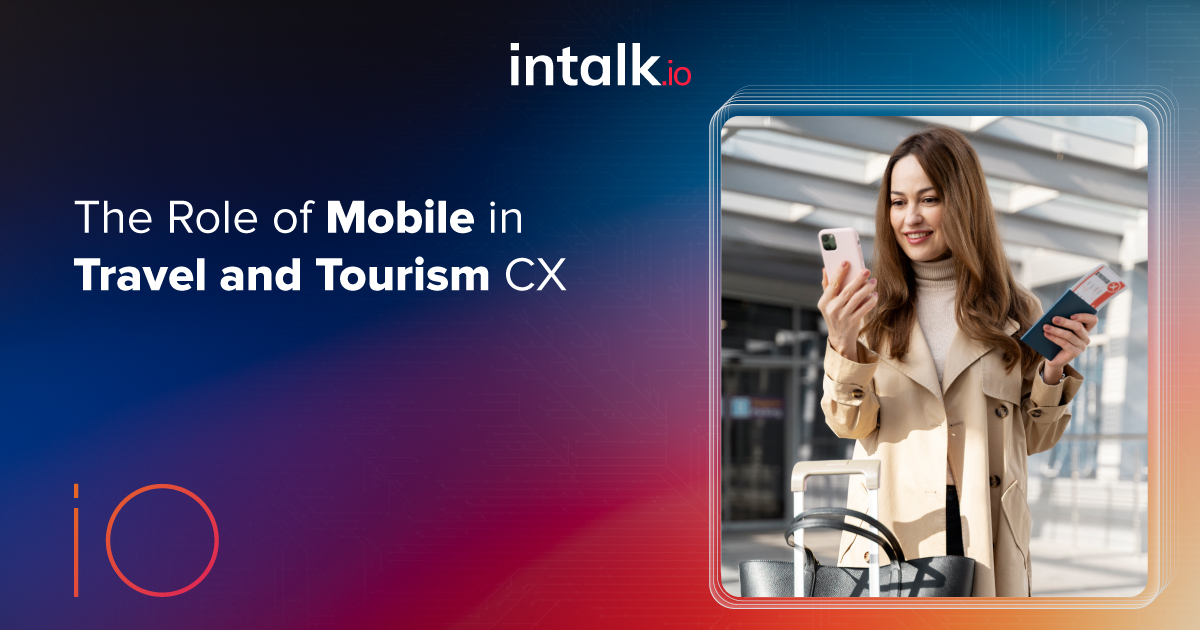Customer experience has become a vital aspect of modern business. As more than $4.6 trillion global travel and tourism market evolves, so does its customer experience (CX).
The travel and tourism industry is quickly shifting towards mobile technology, adapting in a way that impacts the consumer’s first interactions with a specific brand.
It is crucial that travel & tourism businesses utilise all available platforms to cater to their customer’s needs and provide the unique, “first-hand” experience each person demands.
In this blog, we will navigate through the aspects of mobile-first trends in the travel and tourism industry.
We will also guide you with the best practices to optimise your mobile experience in CX. From suitable cloud center solutions to the right approach to mobile technology, we have covered it all.
Current Trends in Mobile Usage in Travel and Tourism CX
It’s no secret that mobile devices have become an integral part of our daily lives, and the travel and tourism industry is no exception. According to a survey by Adobe and Skift, more than 20 percent of traffic for most travel companies comes from mobile platforms, and this number is only going to grow.
But how can travel brands create a mobile experience that truly stands out? One way is by leveraging the power of chatbot & cloud call center solutions.
With a cloud call center solution, travel brands can leverage disparate data sets, such as those involving their CRM systems and app users, to create powerful unified audience profiles .
This allows them to deliver personalised experiences for each traveller based on their preferences, location, and what would make the best experience for them.
A cloud call centre solution also offers a seamless experience across all devices, ensuring that travellers’ experiences are uninterrupted and consistent no matter which device they use.
How a strong mobile experience can improve customer satisfaction and loyalty?
Here is how a strong mobile experience can improve customer satisfaction and loyalty:
- Access to Information: Today’s travellers expect quick and easy access to information. By providing a user-friendly mobile app or website, travel brands can offer customers the ability to access information about their bookings, flight schedules, and destination details with ease.
- Personalisation: Personalisation is key in today’s digital world. By using data analytics and artificial intelligence, travel brands can personalise their mobile experiences, offering customised recommendations, personalised promotions, and a tailored user experience.
- Mobile Payments: The ability to make payments through a mobile device has become increasingly popular in recent years. Travel brands that offer mobile payment options can improve the customer experience by allowing them to easily pay for bookings and services without having to enter payment information each time while offering security features to further enhance customer trust and loyalty.
- Social Media Integration: Travelers today are highly active on social media platforms, and travel & tourism brands that integrate social media into their mobile experiences can benefit from increased engagement and customer loyalty.
Best Practices for Optimising Mobile Experience
Mobile technology has become a crucial part of our lives, so it’s no surprise that it also plays an important role in our travel experiences. The ability to access information at any time, anywhere, has changed how we book flights and hotels, stay up-to-date with our trip plans and communicate with others while on vacation.
So what can your organisation do to optimise the experience for these customers? As mobile becomes an ever-more-important channel, here are some recommendations:
- Develop clear mobile strategies – Create specific content and features for each platform based on customer needs and behaviours.
- Build a responsive design – The website should be responsive, which means that its layout will adapt to the size of the screen used by the user. This is crucial for mobile devices as well as desktops because it allows for a seamless experience for all users regardless of their device type. It also makes it easier to navigate through pages and leads to increased engagement with your site.
- Make it personal: When collecting personal data such as name and email address, make sure that this information is clear, concise and easy to understand. You should also give visitors options on how they wish to be contacted (email/phone/text). This will help build trust with visitors at an early stage of the sales cycle and increase conversion rates later on down the line
Conclusion
Mobile travel apps will increasingly be the channel of choice for customers. As the channel that connects a business and a customer, it is vital that the mobile customer experience be designed to appeal to customers’ needs in order to enhance the business model and increase brand loyalty.
And to help you build or transition into a mobile-first CX, intalk.io is with you.
Explore our revolutionary CX solutions that can make your travel business journey a smooth one
 569
569


